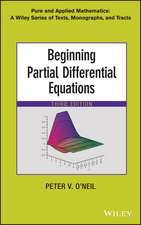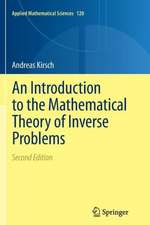Fractional Calculus View of Complexity: Tomorrow’s Science
Autor Bruce J. Westen Limba Engleză Paperback – 18 dec 2020
| Toate formatele și edițiile | Preț | Express |
|---|---|---|
| Paperback (1) | 312.43 lei 6-8 săpt. | |
| CRC Press – 18 dec 2020 | 312.43 lei 6-8 săpt. | |
| Hardback (1) | 789.57 lei 6-8 săpt. | |
| CRC Press – 9 oct 2015 | 789.57 lei 6-8 săpt. |
Preț: 312.43 lei
Preț vechi: 356.64 lei
-12% Nou
Puncte Express: 469
Preț estimativ în valută:
59.79€ • 62.19$ • 49.36£
59.79€ • 62.19$ • 49.36£
Carte tipărită la comandă
Livrare economică 15-29 aprilie
Preluare comenzi: 021 569.72.76
Specificații
ISBN-13: 9780367737795
ISBN-10: 0367737795
Pagini: 303
Dimensiuni: 156 x 234 x 40 mm
Greutate: 0.45 kg
Ediția:1
Editura: CRC Press
Colecția CRC Press
Locul publicării:Boca Raton, United States
ISBN-10: 0367737795
Pagini: 303
Dimensiuni: 156 x 234 x 40 mm
Greutate: 0.45 kg
Ediția:1
Editura: CRC Press
Colecția CRC Press
Locul publicării:Boca Raton, United States
Cuprins
Nomenclature. The Challenge of Complexity. Yesterday's Science. New Ways of Thinking. Simple Fractional Operators. Tomorrow’s Dynamics. Fractional Cooperation. What have we learned?
Descriere
This book explains the quantitative reasoning required by the fractional calculus applied to complex physical, social, and biological phenomena. Fractional calculus is inextricably linked to complexity and provides a way to think systematically about complex phenomena without restricting it to a particular discipline. The book presents the case













